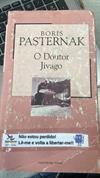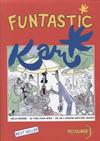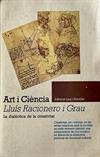Island of Wings
1 journaler for this copy...
Bought in the St Leonard's Hospice charity shop in Haxby this morning.
Stunningly evocative book, both of the landscape, the history and also of relationships and power struggles within marriages and small communities. Set in the 1830s, this story follows the ten years or so of fictionalised Mr and Mrs MacKenzie, who move out to St Kilda as a minister and his wife to bring religion to the islanders. I find St Kilda fascinating - very rocky and seemingly inhospitable, and yet people lived there all year round until 1930 ish. It's a remote Scottish island way out in the Atlantic and subject to Dunvegan on the Isle of Skye.
There's a lot about control and people wanting to change power balances. The islanders of St Kilda have become tennants to the Laird on Skye. Some landlord, when you see the houses the natives are living in, and the fact that improvements could be made - just look what they manage to build for the minster (mind you, this is also with the backdrop of the highland clearances, when whole communities were kicked off their land for sheep enclosures, and told there was no place for them now - go to Canada. Doesn't bear thinking about.). You have the church and MacKenzie in particular coming to "civilise" them and improve their life (including taking away common land, traditions etc) - never considering that perhaps the people who have lived there for generations know better how best to live on the island. MacKenzie is so obsessed with this and becoming a kind of fatherley God to the people that he won't even dare to swim out and save a drowning boy for fear he might fail in the endeavour. Interestingly at the end of the book you see a large percentage of Scottish ministers breaking away from the church of Scotland and setting up a free church - more power struggles and breaking free.
The most interesting (and sometimes grim) was that between the MacKenzies, which at times makes him thoroughly unlikeable although I don't suppose his attitudes were different to a lot of men at that time in history. His wife is there to support HIM, soothe his ego, keep his home etc etc and he turns spiteful when he imagines she might be blossoming herself without him. Other moments when he catches her sophistication or thought, he congratulates himself at how well he has brought her up. One thing I always wondered about, is that despite all those years, Lizzie MacKenzie never learns Gaelic. The islanders only speak Gaelic, and the minister is billingual. It's never explained why, but I can't help but wonder why she didn't pick it up, or why the minister didn't teach her on those long dark winter nights. Maybe it was snobbery that gaelic was an uncivilised tongue, but then it really isolated her on the island, and made her dependent on her husband. And maybe that's it: control. I remember years ago doing a course on celtic history and they mentioned how the Scots who had slaves only spoke to them in Gaelic on purpose as they didn't want them learning English - more possibility of coping if they ran away, communicating with slaves from other plantations etc etc... it just kept them more dependent.
What I found particularly tragic and poignant was this 8 day disease that so many of the newborn babies succombed to, so basically they died in the first 8 days of life. It said it was something like 60%. In the historical notes at the end Altenberg tells us this was a type of tetanus. And probably caused by the intensely unhygenic conditions the islanders lived in, possibly due to their utter reliance on sea bird products from the birds they caught on the island. It's a community that's dying out, both with so few children, the coming of the modern age and communication with the rest of the world (opportunities, travel etc), the knowledge you don't have to starve away winter on your rock, and from what I understand from other books on the island, the austerity of the religion also helped to kill off the traditional ways and sense of community.
There's a lot about control and people wanting to change power balances. The islanders of St Kilda have become tennants to the Laird on Skye. Some landlord, when you see the houses the natives are living in, and the fact that improvements could be made - just look what they manage to build for the minster (mind you, this is also with the backdrop of the highland clearances, when whole communities were kicked off their land for sheep enclosures, and told there was no place for them now - go to Canada. Doesn't bear thinking about.). You have the church and MacKenzie in particular coming to "civilise" them and improve their life (including taking away common land, traditions etc) - never considering that perhaps the people who have lived there for generations know better how best to live on the island. MacKenzie is so obsessed with this and becoming a kind of fatherley God to the people that he won't even dare to swim out and save a drowning boy for fear he might fail in the endeavour. Interestingly at the end of the book you see a large percentage of Scottish ministers breaking away from the church of Scotland and setting up a free church - more power struggles and breaking free.
The most interesting (and sometimes grim) was that between the MacKenzies, which at times makes him thoroughly unlikeable although I don't suppose his attitudes were different to a lot of men at that time in history. His wife is there to support HIM, soothe his ego, keep his home etc etc and he turns spiteful when he imagines she might be blossoming herself without him. Other moments when he catches her sophistication or thought, he congratulates himself at how well he has brought her up. One thing I always wondered about, is that despite all those years, Lizzie MacKenzie never learns Gaelic. The islanders only speak Gaelic, and the minister is billingual. It's never explained why, but I can't help but wonder why she didn't pick it up, or why the minister didn't teach her on those long dark winter nights. Maybe it was snobbery that gaelic was an uncivilised tongue, but then it really isolated her on the island, and made her dependent on her husband. And maybe that's it: control. I remember years ago doing a course on celtic history and they mentioned how the Scots who had slaves only spoke to them in Gaelic on purpose as they didn't want them learning English - more possibility of coping if they ran away, communicating with slaves from other plantations etc etc... it just kept them more dependent.
What I found particularly tragic and poignant was this 8 day disease that so many of the newborn babies succombed to, so basically they died in the first 8 days of life. It said it was something like 60%. In the historical notes at the end Altenberg tells us this was a type of tetanus. And probably caused by the intensely unhygenic conditions the islanders lived in, possibly due to their utter reliance on sea bird products from the birds they caught on the island. It's a community that's dying out, both with so few children, the coming of the modern age and communication with the rest of the world (opportunities, travel etc), the knowledge you don't have to starve away winter on your rock, and from what I understand from other books on the island, the austerity of the religion also helped to kill off the traditional ways and sense of community.








